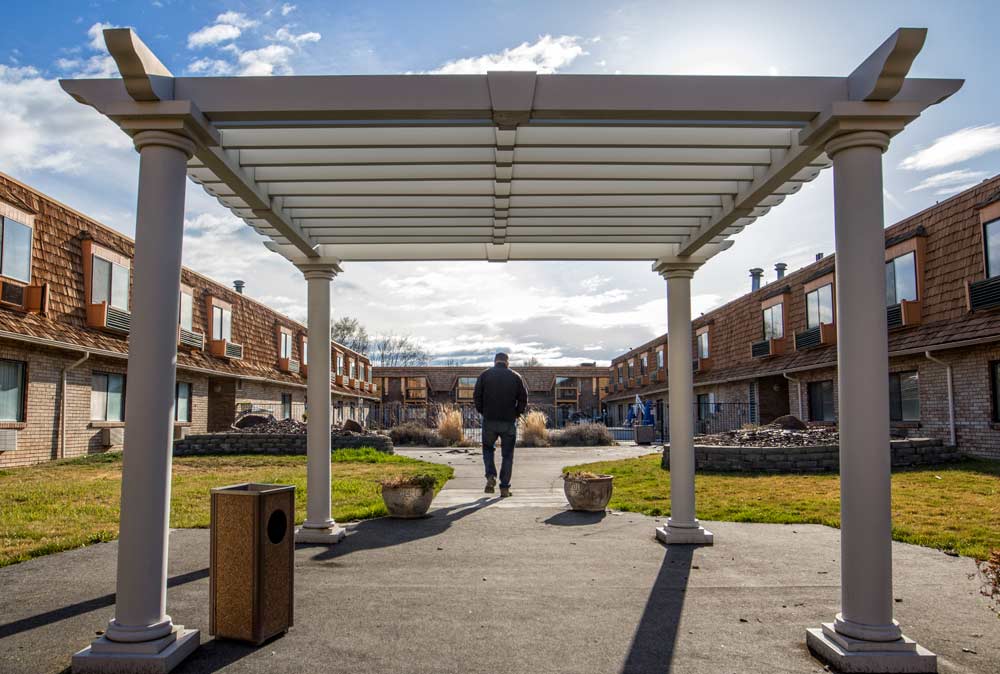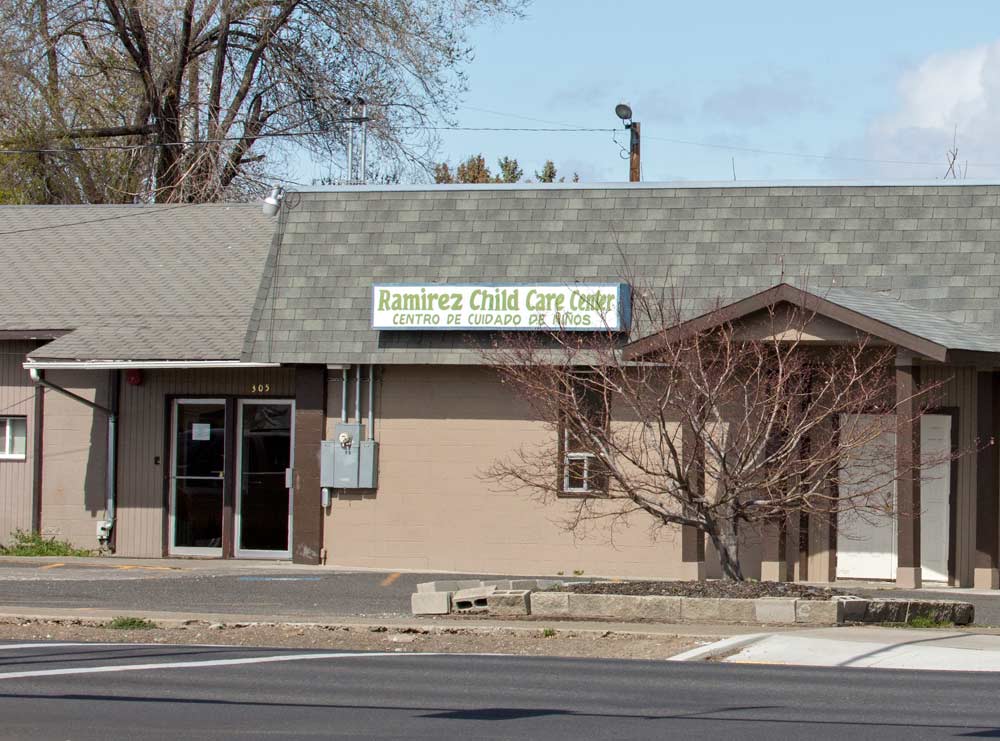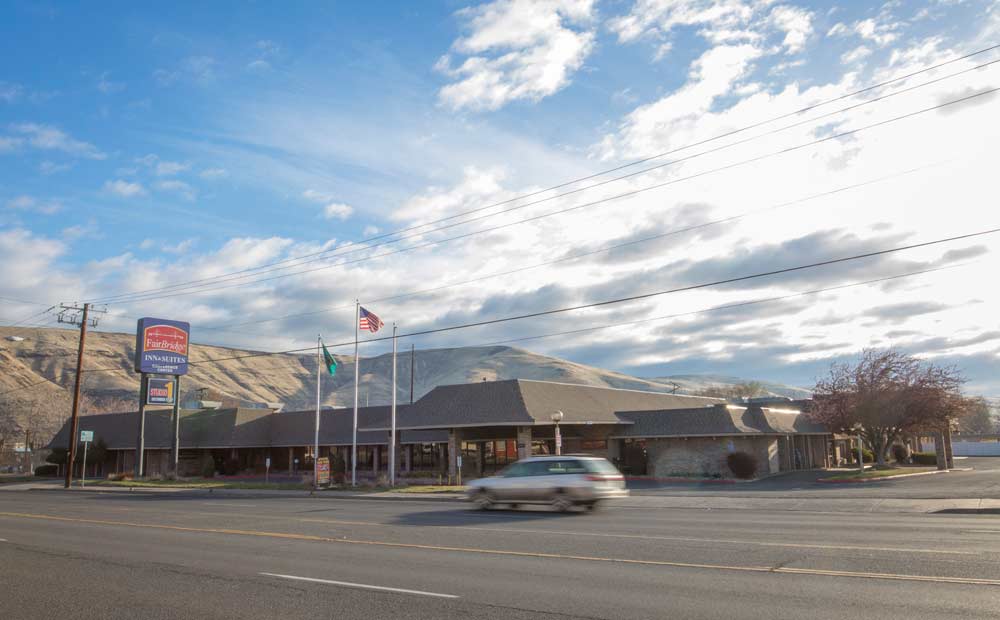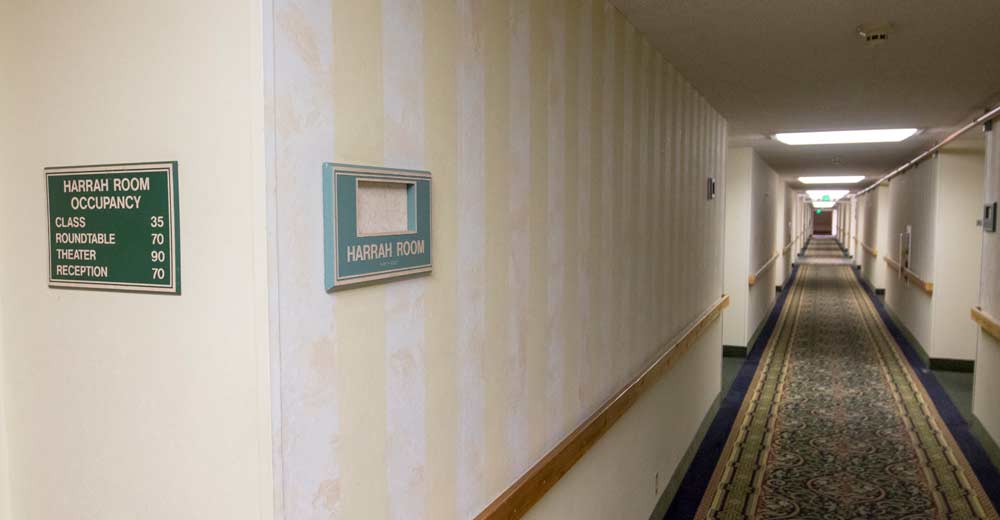
(TJ Mullinax/Good Fruit Grower)
The former hotel at the end of North First Street in Yakima, Washington, already had sound walls, a large kitchen, plenty of rooms and even two pools and a sauna. All owner Rob Valicoff had to add was a coin-operated laundry and better kitchen equipment.
“When you’re feeding 800 guys, you better have your A-game on,” said Valicoff, a Yakima Valley orchardist who led a partnership of investors to purchase the former Fairbridge Inn and Suites to help meet the surging housing demand for agricultural labor. He suspects it will house 800 workers, about 20 percent of them his.
“We need beds for another 160 people, and there’s no way we can find those beds” elsewhere, said Valicoff, one of the first growers to use the H-2A program in Washington. He already owns a 96-bed facility east of town in an unincorporated area.
Valicoff’s as-yet-unnamed hotel is just one of many clever ways fruit industry employers are meeting H-2A federal housing requirements. Others include renovating nursing homes, remodeling child care facilities and repurposing mining and oil camp mobile homes.
The surge in H-2A employment drives most of the projects. The federal government requires growers who hire workers on the H-2A visa to provide housing for them, but they also must offer the same housing to any domestic workers who commute from outside the area.

“There are a lot of creative people out there looking at this,” said Mike Gempler, director of the Washington Growers League, a Yakima organization focused on labor issues. Meanwhile, the Growers League and a competing association, wafla, based in Olympia, Washington, are both building more of their own farm labor housing units.
The Growers League now has three facilities after construction wrapped up on the first phase of Mattawa Slope, a 144-bed facility in Mattawa, Washington, joining dormitory-style apartments in Malaga and Cashmere. Phases two and three will feature 192 beds each.
Wafla’s new 166-bed Riverview Meadows facility is under construction in Okanogan, Washington, and will be ready for workers in the fall, joining the organization’s 96-bed Ringold facility, which opened in 2011 in Mesa, Washington.
The two agricultural human resource nonprofits lease rooms, both on contract to growers and to walk-ins, and have financed construction with a mixture of private loans and loans from the state Department of Commerce. The Growers League is drafting plans to seek more private financing for housing projects in the future as state funding pools have been growing shallower.

City or country
Meanwhile, growers and developers looking to build their own facilities must choose between housing their workers on their farms, where they obviously would be closer to work, or in established communities closer to shopping, restaurants, banks and entertainment, not to mention accessible to water and sewer lines.
“Farmworker housing in the city is better for workers,” said Kim Bresler, membership and communications director for wafla. Usually, the biggest expense faced by employers converting existing buildings is renovating the kitchen to handle the sheer number of workers, she said.
A few developers have faced pushback from residents of communities where they have proposed H-2A housing. Craig Christensen of Remley Orchards has proposed farmworker housing for 64 workers in Dryden, an unincorporated community in North Central Washington’s Wenatchee River Valley. Some neighbors spoke against his plan at a meeting he organized at the nearby church, according to the Wenatchee World newspaper.

Meanwhile, urban areas come with their own rules. For example, Olympia consultant Ermelindo Escobedo represents a property owner in Yakima trying to convert a former child care facility into 20 beds worth of H-2A housing, he said, while Valicoff aims for his 800. However, city of Yakima zoning laws limit boarding houses to 10 people. The City Council is considering modifying those laws. He and Valicoff also faced some complaints from Yakima residents in public hearings about the zoning changes.
All the same, Valicoff aims to put workers in his hotel this spring.
Including his own workers, he estimated in late March that the Yakima area had committed to using about 450 of the hotel’s beds and believes the rest will sell out to other growers this year, such is the demand.
“I don’t think it’s going to be a problem filling it,” he said. •
—by Ross Courtney






Leave A Comment